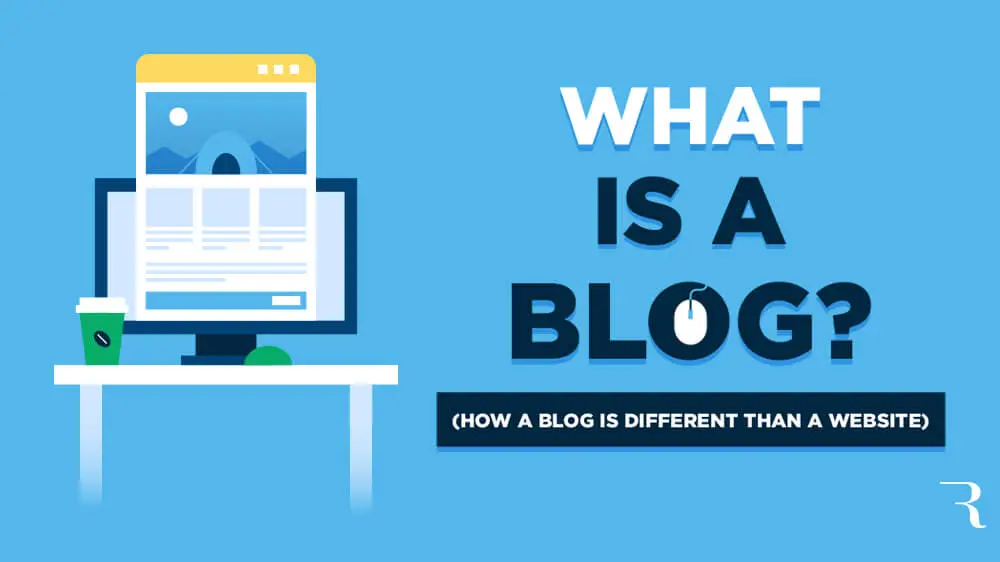
Google AdSense is one of the most popular ways to monetize a blog, allowing content creators to earn money by displaying ads on their websites. If you’re using Blogger, a free blogging platform from Google, you may wonder whether you can successfully get AdSense approval and make money from your content. The short answer is: Yes, you can get AdSense approval with Blogger—but it’s not automatic. You need to optimize your blog and follow certain guidelines to ensure your website meets Google’s AdSense requirements.
In this extensive guide, we’ll walk you through everything you need to know about getting AdSense approval with Blogger, from setting up your blog to optimizing content, design, and SEO. Whether you’re new to blogging or looking to improve your AdSense approval chances, this guide is designed to help you succeed.
Table of Contents
- What is AdSense and Why Should You Care?
- Why Blogger?
- Requirements for AdSense Approval on Blogger
- Content Quality
- Domain Name (Custom Domain vs. Blogspot)
- Site Design and Navigation
- Traffic and User Engagement
- Step-by-Step Guide to Getting AdSense Approval on Blogger
- Creating Your Blog
- Selecting the Right Niche and Content Strategy
- Writing High-Quality Content
- Enhancing User Experience and Site Design
- SEO and Keyword Strategy
- Adding Essential Pages (About, Contact, Privacy Policy)
- Tips to Ensure a Higher Chance of AdSense Approval
- Regular Content Updates
- Avoiding AdSense Violations
- Understanding Google’s Policies
- Troubleshooting AdSense Rejection on Blogger
- Common Reasons for Rejection
- What to Do After a Rejection
- Alternatives if AdSense Approval is Delayed or Denied
1. What is AdSense and Why Should You Care?
Google AdSense is an advertising program that allows website owners to earn money by displaying ads on their blogs or websites. Google serves the ads, and you earn revenue whenever a visitor clicks on an ad (CPC – Cost Per Click) or views the ad (CPM – Cost Per Thousand Impressions).
For bloggers, AdSense is one of the easiest and most reliable ways to monetize their content, as it integrates seamlessly with Google’s vast advertising network. The challenge, however, lies in getting approved for AdSense. Google has a set of guidelines and criteria that must be met before your website qualifies for approval.
For Blogger users, AdSense can be especially attractive due to its simple integration, where you can place ads directly into your posts, sidebars, and even within your footer. But securing approval from Google isn’t instantaneous. It requires careful preparation and adherence to specific rules.
2. Why Blogger?
Blogger is a free blogging platform owned by Google that allows users to easily set up and manage a blog. It’s a great option for beginners who want to create a blog quickly without needing advanced technical skills. Some reasons Blogger is a popular choice among bloggers seeking AdSense approval include:
- Google Integration: Blogger is owned by Google, which means it’s designed to integrate smoothly with AdSense, making the process of monetizing your blog easier.
- Free Hosting: With Blogger, you don’t have to worry about paying for hosting. This can be a huge advantage when you’re just starting.
- Ease of Use: Blogger provides an intuitive user interface, making it simple to create and manage your blog.
- Customization Options: While limited compared to self-hosted WordPress, Blogger still offers a range of customization options with free and paid templates.
- Custom Domain Options: You can easily link your Blogger blog to a custom domain (e.g., www.yourblog.com), which is more professional and helps with AdSense approval.
However, Blogger isn’t without its limitations. For example, it doesn’t offer as much flexibility in terms of design and functionality as self-hosted WordPress. Despite these limitations, Blogger remains a great option for those who want to get started with blogging and monetization.
3. Requirements for AdSense Approval on Blogger
Before you apply for AdSense on Blogger, it’s important to ensure your blog meets certain key requirements. These factors will determine whether or not Google approves your application.
Content Quality
The content on your Blogger site must be high-quality, original, and useful to your readers. Google values content that adds value and answers the needs of your target audience. Some key content guidelines include:
- Original Content: Your blog must have unique content. Plagiarism or copying content from other websites is a surefire way to get rejected by AdSense.
- Long-Form Articles: While there’s no fixed word count requirement, Google tends to favor blogs that provide detailed, well-researched posts. Try to aim for at least 500-700 words per article, with the ideal being closer to 1,000 words or more.
- Useful and Relevant Content: Your blog should offer useful content that provides answers, solves problems, or entertains your audience. Avoid overly vague or thin content.
Domain Name (Custom Domain vs. Blogspot)
While you can apply for AdSense with a Blogger blog using the default blogspot.com domain (e.g., yourblog.blogspot.com), it’s highly recommended to use a custom domain (e.g., www.yourblog.com) to increase your chances of approval. Custom domains look more professional and help establish credibility, which is important for both users and Google.
To set up a custom domain on Blogger, you can purchase one from providers like GoDaddy, Namecheap, or directly through Blogger.
Site Design and Navigation
AdSense approval isn’t just about content—it’s also about the user experience. Google looks for well-organized, easy-to-navigate websites that don’t overwhelm visitors with clutter. Important considerations include:
- Responsive Design: Ensure your blog’s design is mobile-friendly. A significant portion of web traffic comes from mobile devices, and Google prioritizes mobile-first indexing.
- Clear Navigation: Your blog should have an easy-to-use navigation menu. Visitors should be able to find what they’re looking for with minimal effort.
- Minimal Ads and Pop-ups: Avoid overwhelming visitors with too many ads, pop-ups, or intrusive elements. Google values user experience and penalizes websites that use excessive ads.
Traffic and User Engagement
Google doesn’t specify a minimum amount of traffic required for AdSense approval, but most successful applicants have at least some consistent traffic. The reason is that Google wants to ensure that your site has an engaged audience before they begin displaying ads.
While it’s possible to get AdSense approval without massive traffic, you should focus on creating valuable content and promoting your blog through SEO and social media to build a readership.
4. Step-by-Step Guide to Getting AdSense Approval on Blogger
Creating Your Blog
Start by setting up a Blogger account and creating a new blog. Choose a niche that interests you and has enough potential to generate traffic. You can choose a free blogspot.com domain or purchase a custom domain for more professional branding.
Selecting the Right Niche and Content Strategy
Your blog should focus on a specific niche, such as health, technology, travel, or personal finance. Choose a topic you’re passionate about and ensure there’s a demand for content within that niche. Avoid overly broad topics, as they can be hard to rank in search engines.
Writing High-Quality Content
Focus on writing well-researched, original content that is useful to your audience. Blog posts should be at least 500–700 words long, though 1,000 words or more is ideal. Break your posts into clear sections with headings, and include images and other media to make your content more engaging.
Enhancing User Experience and Site Design
Choose a clean, professional-looking template that is easy to navigate. Blogger provides several free templates, but you can also purchase premium templates from third-party providers. Make sure your site is responsive (mobile-friendly), and avoid using too many ads or pop-ups.
SEO and Keyword Strategy
Research keywords relevant to your niche and incorporate them naturally into your content. Use tools like Google Keyword Planner or Ubersuggest to find low-competition keywords that people are actively searching for. Focus on on-page SEO by optimizing titles, meta descriptions, and image alt tags.
Adding Essential Pages (About, Contact, Privacy Policy)
Google requires certain pages on your blog before applying for AdSense, including:
- About Page: A page that explains who you are and what your blog is about.
- Contact Page: A page that includes a contact form or email address for users to reach you.
- Privacy Policy: A page outlining how you collect and use data from your visitors. This is crucial for AdSense approval.
5. Tips to Ensure a Higher Chance of AdSense Approval
- Regular Content Updates: Google prefers sites that are actively maintained. Post new content regularly (2-3 times a week is ideal) to keep your blog fresh.
- Avoiding AdSense Violations: Make sure you follow Google’s AdSense Program Policies. Avoid prohibited content like adult material, hate speech, or illegal activities.
- Understanding Google’s Policies: Thoroughly read Google’s AdSense Program Policies to ensure your content and website comply with their guidelines.
6. Troubleshooting AdSense Rejection on Blogger
If your application is rejected, don’t panic. Google typically provides a reason for the rejection. Common reasons include insufficient content, violations of Google’s policies, or a lack of user engagement.
- Increase Content: Add more high-quality content to your site before reapplying.
- Fix Policy Violations: If you’ve
violated any of Google’s policies, make the necessary changes and ensure compliance.
- Improve User Experience: Make your site more user-friendly by simplifying navigation and reducing unnecessary ads.
Once you address the issues, wait at least a few weeks before reapplying.
7. Alternatives if AdSense Approval is Delayed or Denied
If you’re unable to get approved for AdSense, there are other monetization options, such as:
- Affiliate Marketing: Promote products related to your niche and earn commissions on sales.
- Sponsored Posts: Partner with brands for sponsored content.
- Media.net: A popular alternative to AdSense, offering display ads on your blog.
- Direct Ad Sales: Sell ad space directly to businesses or advertisers in your niche.
Conclusion
Yes, it is absolutely possible to get AdSense approval with Blogger, but it requires effort and patience. By focusing on quality content, a professional design, and adhering to Google’s policies, you can increase your chances of getting approved for AdSense. Stay consistent, improve your site’s user experience, and optimize for SEO to create a blog that will not only attract readers but also generate revenue through AdSense. Keep refining your strategy and remember that success in blogging, like with any other endeavor, takes time and dedication.


Leave a Reply